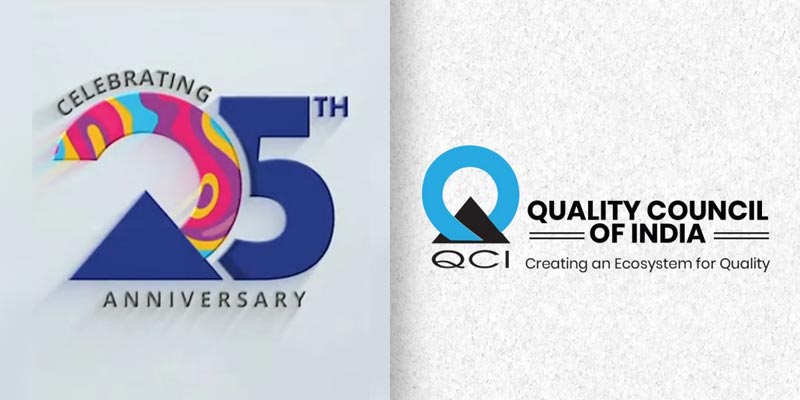- India
- Oct 07
Explainer / Quality Council of India (QCI)
The Quality Council of India (QCI) celebrated 25 years of its establishment in an event in New Delhi.
Quality Council of India
• The Quality Council of India (QCI), was set up in 1997 as an autonomous body to establish an accreditation structure in the country, to create a mechanism for independent third-party assessment of products, services and processes and to spread quality movement in India by undertaking a National Quality Campaign.
• It is a non-profit autonomous organisation registered under Societies Registration Act XXI of 1860 under the administrative control of Department for Promotion of Industry and Internal Trade (DPIIT).
• QCI works as the national accreditation body.
• Besides the role of putting in place the accreditation structure, it also promotes the adoption of quality standards relating to Quality Management Systems (ISO 14001 Series), Food Safety Management Systems (ISO 22000 Series) and Product Certification and Inspection Bodies through the accreditation services provided by National Accreditation Board for Certification Bodies (NABCB).
• Indian industry is represented in QCI by three premier industry associations namely Associated Chambers of Commerce and Industry of India (ASSOCHAM), Confederation of Indian Industry (CII) and Federation of Indian Chambers of Commerce and Industry (FICCI).
• QCI functions through the governing body and other executive bodies (boards/committees) for implementing the strategy, policy and operational guidelines as set out by its governing council.
• QCI plays a pivotal role in propagating, adoption and adherence to quality standards in all important spheres of activities including education, health care, environment protection, governance, social sectors, infrastructure sector and such other areas of organised activities that have significant bearing in improving the quality of life and well-being of citizens of India.
• It leads nationwide quality movement in the country through National Quality Campaign aimed at creating awareness amongst citizens, empowering them to demand quality in all spheres of activities, and promoting and protecting their well being by encouraging manufacturers and suppliers of goods and service providers for adoption of and adherence to quality standards and tools.
Boards/divisions under QCI:
i) National Accreditation Board for Testing & Calibration Laboratories (NABL)
ii) National Accreditation Board for Hospitals & Healthcare Providers (NABH)
iii) National Accreditation Board for Education & Training (NABET)
iv) National Accreditation Board for Certification Bodies (NABCB)
v) National Board for Quality Promotion (NBQP).
• Every board is functionally independent and works within its area of expertise.
• QCI started venturing out into the global scenario and established memberships with forums and organisations that decided about how the business and trade was to be conducted in a globalised environment. QCI and NABL became members of International Accreditation Forum (IAF) and International Laboratory Accreditation Cooperation (ILAC) respectively and subsequently to the regional bodies like Asia Pacific Accreditation Cooperation (APAC) and Asia Pacific Laboratory Accreditation Cooperation (APLAC).
Manorama Yearbook app is now available on Google Play Store and iOS App Store

